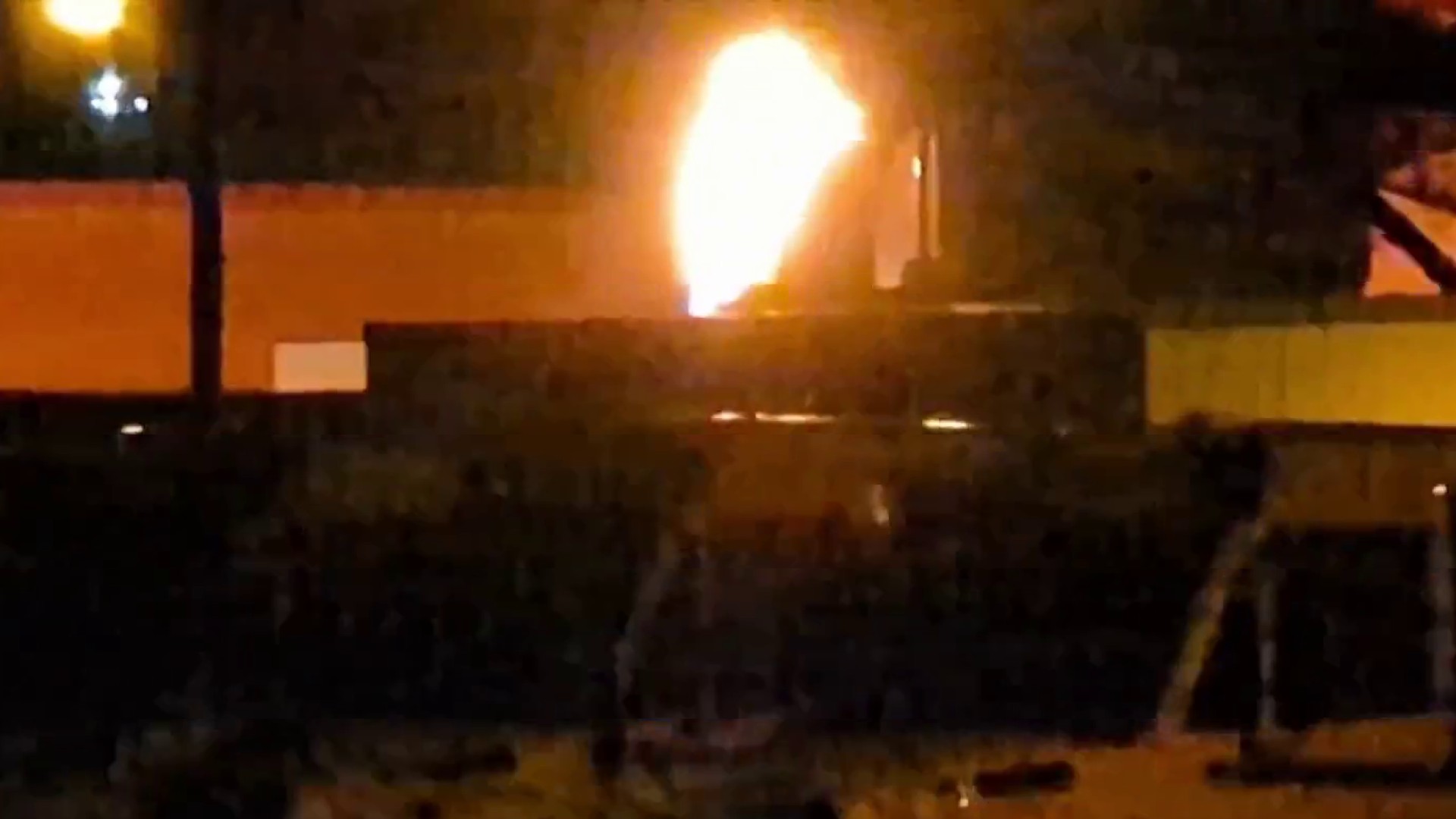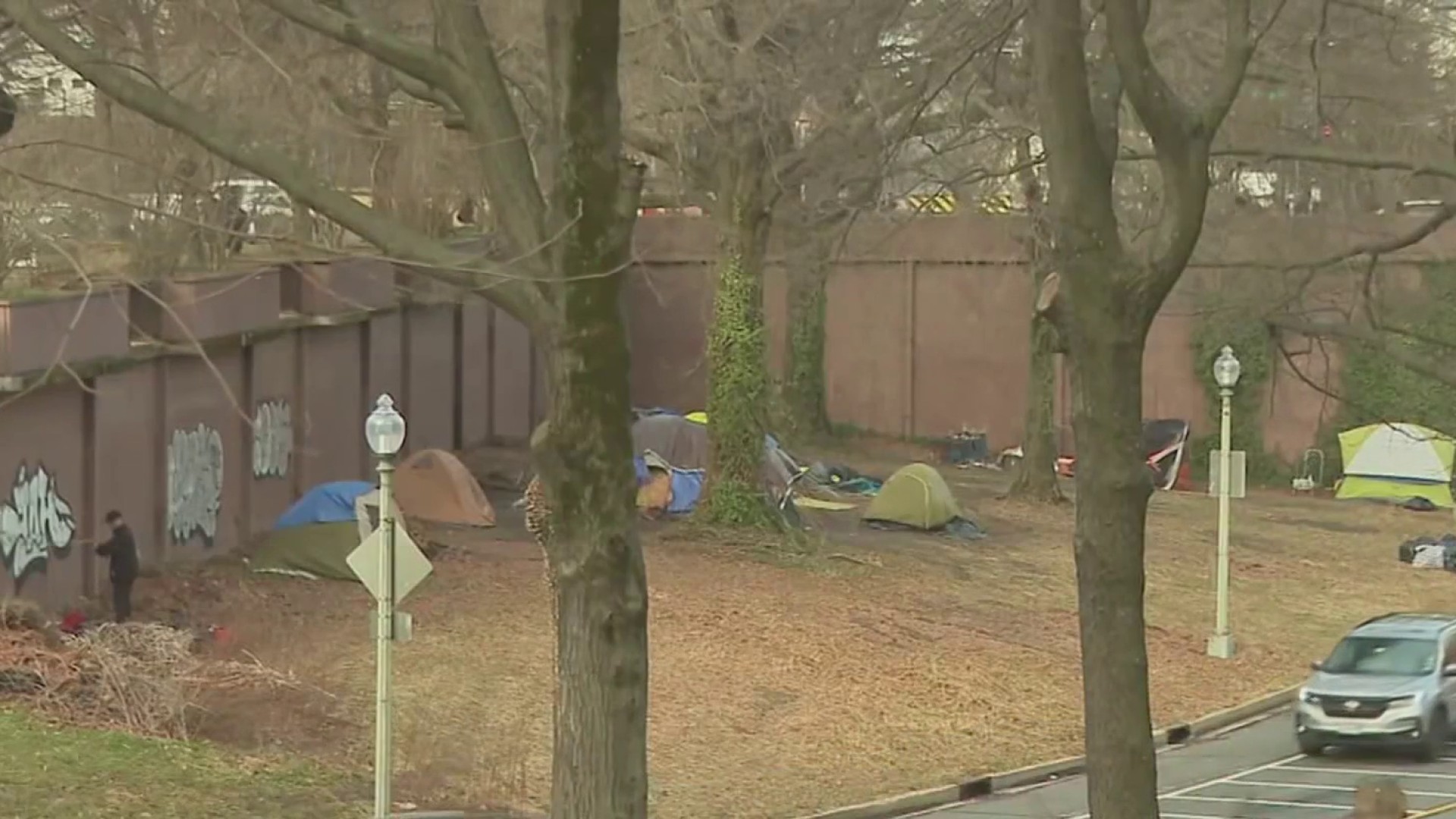Fifteen years after her ex-husband and his teenage accomplice gunned down 10 people in Maryland and Virginia, one local woman is making sure victims of domestic violence and abuse have the tools and resources they need.
For three weeks in October 2002, terror gripped the D.C. area as John Allen Muhammad and Lee Boyd Malvo shot residents mercilessly. Among the victims: A bus driver on Grand Pre Road who was standing on the top step of his empty bus, a man pumping gas at a Mobil gas station on Aspen Hill Road and a woman sitting on a bench near a post office on Rossmoor Boulevard.
The motive for the shootings remains murky. But Muhammad's ex-wife, Mildred Muhammad, has always believed the attacks were a smoke screen for his plan to kill her and regain custody of their three children.
In the years since the shocking attack, Mildred Muhammad has become an advocate for victims of domestic violence and now serves as a victims of crime consultant to the U.S. State Department.
Mildred Muhammad says her once-loving ex-husband became erratic after returning from the first Gulf War with the Army. The abuse she suffered was verbal in nature, and because she had no scars, she says others didn't believe what she was going through.
After their 12-year marriage fell apart in 2000, John Allen Muhammad secretly took their children to Antigua.
During the 18 months the children spent with their father, Mildred Muhammad stayed in a shelter for a time and struggled financially. Her older sister later took her in at her suburban Maryland home. Then one day in 2001, she got a call that John Allen Muhammad was back in the United States with their children.
Local
Washington, D.C., Maryland and Virginia local news, events and information
"John went to social services in Washington state. He filed for food stamps and cash," Mildred Muhammad said. "They contacted me here in Maryland and said that they found my children. I had to go back to Tacoma, Washington, for an emergency custody hearing and I was awarded full custody."
Muhammad believes she was the target when John Allen Muhammad and Malvo shot and killed 10 people from a hole cut in the trunk of their dark blue Chevy Caprice. After both men were captured, she says she began receiving messages, blaming her for the devastation her ex-husband left behind.
John Allen Muhammad was executed in 2009, and Malvo is serving life without parole.
"I didn't debate with anybody because everybody was feeling pain. Everyone had a reason to feel that their lives were being threatened, so I just took it," she said. "I was the closest they could get to John."
Mildred Muhammad says she turned her attention to raising her children and making sure they were "emotionally balanced."
"There were comments like, 'If you would've stayed with him then he would've just killed you. If you would've stayed on the West Coast then people on the East Coast would still be alive," she said. "My goal was to make sure we made it through."
Today, she says her family has healed.
"When we have conversations, they're always from a place of safety, peace and healing. We don't have nightmares and triggers and those emotions that would send us back," she said.
This year, Mildred Muhammad released her second book, "I'm Still Standing". She says the book contains tools people can use to help victims of domestic violence and abuse.
"Because domestic abuse and violence is an epidemic, everybody knows somebody who is or was a victim of domestic violence," she said.
One in 4 women and 1 in 7 men have suffered violence by a partner in their lifetime, the Centers for Disease Control and Prevention said in a national report published this year.
But before you try to help, Mildred Muhammad says it's important that you set your boundaries.
"Have your boundaries in check. What you will do, what you won't do and what you can't do. Will you give them money? Would you let them stay with you?," she said.
She suggests taking them to lunch and asking this question: How can I help?
"Say it out of the blue. They'll know what you're talking about. Give them the chance to tell you what they need," she urged.
"You may be the only person that has asked this person, 'How can I help you?' That's empowering because now you're allowing me to make a decision about my life when others have been telling me what to do," she explained.
If you need help, the National Domestic Violence Hotline can be reached at 800−799−7233. They provide resources no matter where you’re located.
The Associated Press contributed to this report.



